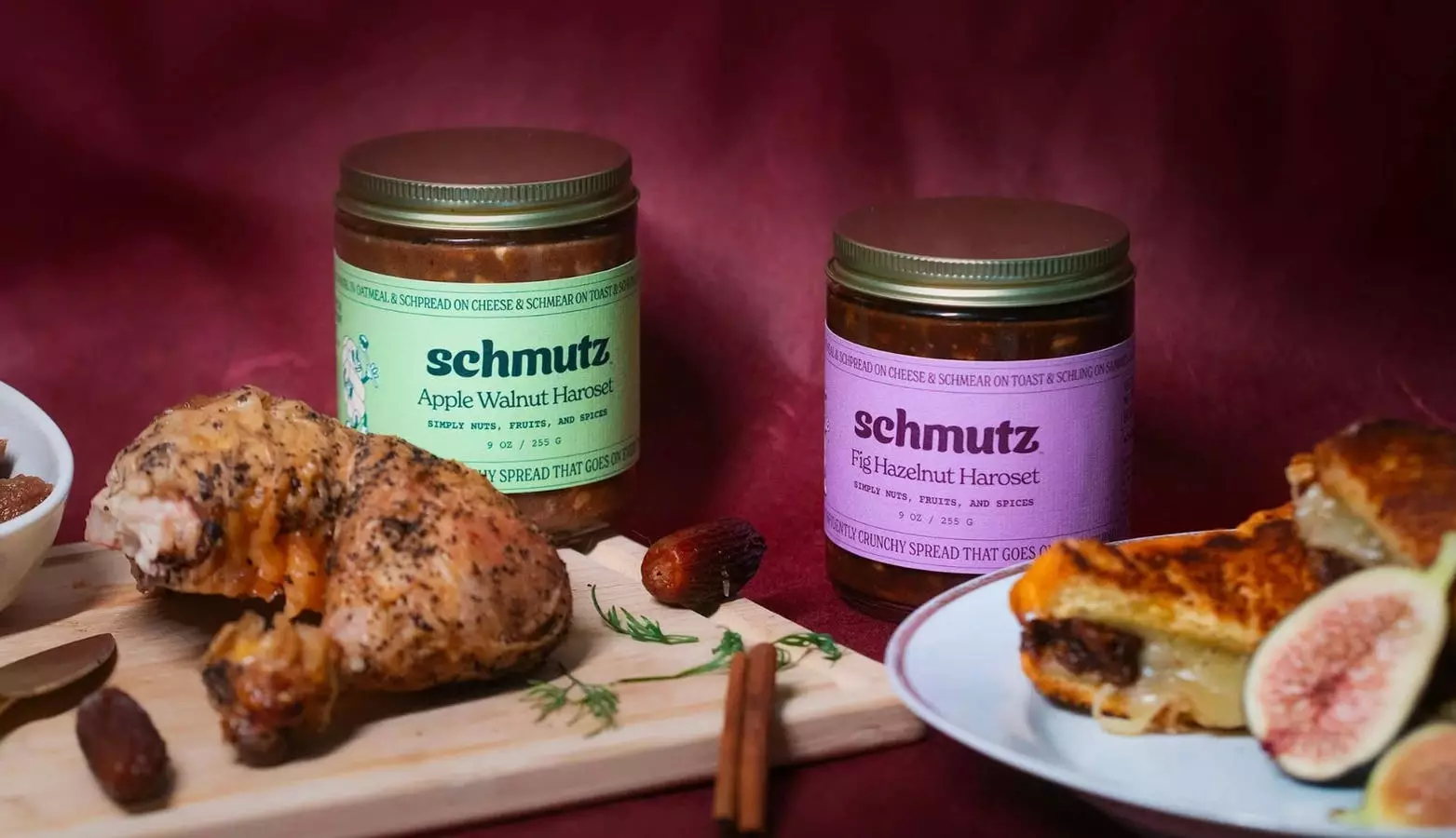Rosh Hashanah, the Jewish New Year, is a time characterized by reflections, blessings, and most notably, sweetness—a theme central to the festival as families often dip apples in honey to symbolize their hopes for a fruitful year ahead. However, the echoes of tradition sometimes require a modern twist to rejuvenate interest and broaden participation. Enter Michael Rubel and his revolutionary product, Schmutz, a pre-packaged haroset that goes far beyond its typical place on the Passover seder table.
Rubel’s innovative approach, inspired by the myriad versions of haroset across the Jewish diaspora, invites culinary exploration into a dish often taken at face value. Rubel’s vision exemplifies the broader evolution of Jewish cuisine, which is increasingly being recognized not just as ritual food, but as vibrant, everyday fare that can be savored year-round.
Michael Rubel’s background fuels his passion for creating Schmutz. Having lived in various regions—Maine, Kansas City, Dallas—he has experienced both vibrant Jewish communities and areas with few or no Jewish inhabitants. Rubel’s journey reflects a broader narrative of Jewish migration and adaptation, where cultural elements like cuisine evolve through cross-pollination with different communities.
The concept of haroset, traditionally seen as something reserved for Passover, can also be considered a microcosm of Jewish adaptability. Different cultures contribute unique ingredients and methods; for instance, haroset in Jamaica might incorporate peanuts, while Italian variations may feature figs. The discovery of a Kurdish recipe that introduced him to diverse textures and ingredients inspired Rubel to redefine his own understanding of this staple dish.
By transforming his own experiences into culinary experimentation, Rubel became acutely aware that haroset could be much more than an occasional dish—it symbolizes interconnection within the Jewish experience. The resulting product, Schmutz, serves as a reflection of these rich cultural intersections.
Schmutz: A Modern Take on an Ancient Tradition
Rubel’s commitment to creating a product that honors tradition while embracing modern culinary preferences led to the development of Schmutz. Launched in April 2023, it aims to excite both Jewish and non-Jewish palates alike. The name itself—a playful nod to its spreadable texture reminiscent of a classic schmear—indicates the brand’s intent to challenge conventional perceptions surrounding haroset.
Prior to launching Schmutz, Rubel conducted extensive tests in his kitchen, using friends and family as taste-testers to refine the texture and flavor profile. He aimed for a consistency that would allow it to be spread easily, all while retaining a delightful crunch. As Rubel suggests, the versatility of Schmutz allows it to transcend traditional pairings, enabling unusual yet delightful combinations such as grilled cheese or even ice cream.
Schmutz comes in two enticing varieties—Apple Walnut and Fig Hazelnut—drawing inspiration from their respective Ashkenazi and Italian roots. By stripping the product down to its most basic elements—just apples, nuts, and spices—he has produced a clean, preservative-free gourmet spread that resonates with health-conscious consumers. Moreover, the underlying historical narrative suggests a reverence for the past while inviting innovation in the present.
Reviving Jewish Food Culture
Rubel’s efforts come at a pivotal time when Jewish food is undergoing a renaissance. As traditional delis decline and young culinary entrepreneurs emerge, the landscape of Jewish cuisine is shifting significantly. Figures like Jeffrey Yoskowitz of The Gefilteria emphasize that today’s Jewish identity is interwoven with food exploration, evident in the popularity of various Jewish fusion dishes.
Schmutz not only aligns itself with this cultural shift but also provokes necessary questions: Why should haroset exist only at Passover? Its historical roots as a Roman spread resonate with contemporary tastes, demonstrating that Jewish food holds value beyond ritual constraints.
As Rubel succinctly puts it, “it’s about deliciousness,” and this sentiment captures the essence of what Schmutz represents. By positioning Schmutz as a versatile culinary delight suitable for any occasion, he bridges generational gaps, empowering people from all walks of life to explore and appreciate Jewish cuisine.
Balancing a full-time job while nurturing his food venture, Rubel stands as a testament to the passion-driven entrepreneurship defining modern Jewish food culture. As he embraces both the responsibility and privilege of reviving and reinvigorating traditional fare, Schmutz acts as a vehicle for him to share the significance of Jewish culinary history with a broader audience.
Ultimately, Schmutz serves not just as a delicious condiment; it is an invitation to embark on a sweet journey through the rich tapestry of Jewish history—one spoonful at a time. Whether during Rosh Hashanah or any day in between, Rubel’s innovative approach ensures that the essence of haroset is not just preserved but enriched for generations to come. As we dip into this new era of Jewish culinary exploration, it becomes clear: tradition can evolve, and so too can our understanding of what it means to celebrate community through food.

